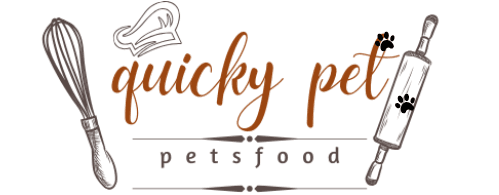Can Dogs Eat Bacon? Vet-Verified Answers and Safety Tips
Bacon it’s crispy, flavorful, and a favorite breakfast treat for many people. You may find yourself wanting to share a bite with your furry best friend when they give you those irresistible puppy eyes. But before you toss them a piece of your morning bacon, you might wonder: Can dogs eat bacon safely?
Table of Contents
As a dog owner, you always want to make the best decisions for your pet’s health and happiness. While sharing your food might seem harmless, not all human snacks are suitable for your dog. Bacon is one of those foods that falls into a bit of a gray area. It’s not toxic to dogs, but there are some important considerations to keep in mind before letting your dog indulge in this savory treat.
In this article, we’ll explore whether bacon is safe for dogs, the potential risks, and how you can share this food with your pet in a way that minimizes harm. Plus, we’ll cover some great alternatives to bacon that can help you treat your dog without the worries. Let’s dive in!
Can Dogs Eat Bacon? The Basics
Yes, dogs can technically eat bacon, but it’s not something you should offer them regularly. Bacon is not toxic to dogs, but it is packed with fat, salt, and other elements that could lead to health issues if consumed too often. The key takeaway here is moderation. Bacon, in small amounts, may not harm your dog, but it should always be considered an occasional treat, not a daily snack.
The Problem with Bacon
Here’s why you should think twice before handing over that crispy piece of bacon to your dog:
- Fat Content: Bacon is extremely high in fat, which can be difficult for your dog’s digestive system to process, especially if they’re not used to fatty foods. Too much fat in your dog’s diet can lead to obesity and more serious conditions like pancreatitis – an inflammation of the pancreas that can be triggered by excessive fat consumption.
- Salt and Sodium: Bacon is also loaded with salt. While humans can tolerate salt better, dogs have much lower tolerances. High sodium levels can lead to dehydration, kidney issues, and high blood pressure, especially in dogs that already have underlying health problems.
Can Dogs Eat Cooked Bacon?
When it comes to cooking bacon for your dog, it’s important to know the difference between raw and cooked bacon.
Cooked Bacon: Cooked bacon is generally safer than raw bacon. Cooking the bacon renders out much of the fat, which might make it slightly less harmful than raw bacon. However, cooking bacon doesn’t eliminate the salt, which is still a concern.
Raw Bacon: Raw bacon carries potential risks that cooked bacon doesn’t. It could contain harmful bacteria or parasites, such as Salmonella, that can cause serious gastrointestinal issues in dogs. So, if you decide to give your dog bacon, make sure it’s cooked thoroughly to avoid any bacterial infections.
Is Bacon Bad for Dogs in the Long Term?

Regularly feeding your dog bacon is definitely not recommended. Here’s why:
- Obesity: Bacon is high in calories, and feeding your dog bacon regularly can contribute to unnecessary weight gain. Dogs who are overweight are at a higher risk of developing other serious conditions, like joint problems, heart disease, and diabetes.
- Pancreatitis: Dogs that consume too much fat, especially fatty foods like bacon, are at risk of developing pancreatitis. This condition can be extremely painful and potentially life-threatening. Dogs who are more prone to pancreatitis, such as those with a history of it or older dogs, should avoid bacon completely.
- Digestive Problems: Bacon is rich and greasy, which can upset your dog’s stomach. You may notice signs like diarrhea, vomiting, or an upset stomach shortly after your dog eats bacon. These symptoms are often temporary but can lead to dehydration if left untreated.
How to Safely Give Bacon to Your Dog
If you’re really set on sharing some bacon with your dog, you can do so safely by following a few guidelines:
- Limit the Amount: can dogs eat bacon ? Keep bacon as an occasional treat. A small, bite-sized piece is enough for your dog. Avoid giving them large portions, especially if they’re not used to eating fatty foods.
- Remove Excess Fat: Before giving your dog a piece of bacon, trim off any visible fat. The fat is what poses the greatest risk to your dog’s health, so removing it can make the bacon a little less harmful.
- No Seasoning or Additives: Never give your dog bacon that’s been seasoned with spices, garlic, or onion. These ingredients can be toxic to dogs. It’s best to give them plain, unseasoned bacon without any additives.
- Monitor for Reactions: After giving your dog a small piece of bacon, watch them closely for any signs of digestive upset, such as vomiting or diarrhea. If you notice anything unusual, contact your vet right away.
Can Bacon Grease Be Used in Dog Food?
Bacon grease, while tasty to humans, is not suitable for dogs. It’s a high-fat substance that can contribute to obesity, pancreatitis, and digestive issues. Adding bacon grease to your dog’s food can disrupt their digestive balance and put unnecessary strain on their pancreas and liver. Instead of bacon grease, consider using healthier oils like coconut oil or fish oil, which provide nutritional benefits without the risk.
What to Do if Your Dog Eats Too Much Bacon
If your dog happens to get into the bacon stash and overeats, it’s important to know what to do next.
Signs of Overeating Bacon:
- Vomiting
- Diarrhea
- Lethargy
- Abdominal pain or bloating
If your dog shows any of these symptoms, contact your vet immediately. If the symptoms are mild, you may need to monitor your dog at home and make sure they stay hydrated. However, if your dog is showing more severe signs, such as difficulty breathing or unresponsiveness, seek immediate veterinary care.
What Are Some Healthy Bacon Alternatives for Dogs?
If your dog loves the taste of bacon, there are some safer, healthier alternatives that you can try:
- Lean Meats: Cooked chicken, turkey, or lean beef are great alternatives. These meats provide protein without the unhealthy fats found in bacon.
- Carrots: Crunchy and low in calories, carrots are a great snack for dogs. They also help keep your dog’s teeth clean.
- Apple Slices: Apples (without seeds or cores) are another great, healthy treat that dogs often love. They’re low in calories and high in fiber.
- Dog-Specific Treats: Look for dog treats that are made with high-quality ingredients. These treats are designed to be safe and healthy for your dog, providing them with the nutrition they need while satisfying their taste buds.
Frequently Asked Questions (FAQ)
Can I feed my dog bacon every day?
No, bacon should only be given as an occasional treat, due to its high fat and salt content. Feeding bacon every day could lead to long-term health problems.
Can bacon cause pancreatitis in dogs?
Yes, the high-fat content in bacon can trigger pancreatitis, especially if consumed regularly or in large quantities.
Is cooked bacon safe for dogs?
Cooked bacon is safer than raw bacon, but it’s still high in fat and sodium. Always serve it in moderation and remove excess fat.
Can bacon grease be harmful to dogs?
Yes, bacon grease is high in fat and should not be added to your dog’s food. It can lead to obesity and digestive issues.
Conclusion
In conclusion, while bacon can be enjoyed by your dog in small amounts, it’s not the healthiest treat. The high fat and salt content can lead to a variety of health issues, including obesity, pancreatitis, and digestive problems. Moderation is key, and it’s important to ensure that your dog enjoys bacon only on rare occasions. Always remember that there are many other healthier alternatives to satisfy your dog’s cravings, and these can help keep your furry friend healthy and happy.
If you’re looking for tasty treats that are safe for your dog, explore our collection of nutritious dog foods and treats made with your pet’s health in mind. Treat your dog to something special – without the worry!







